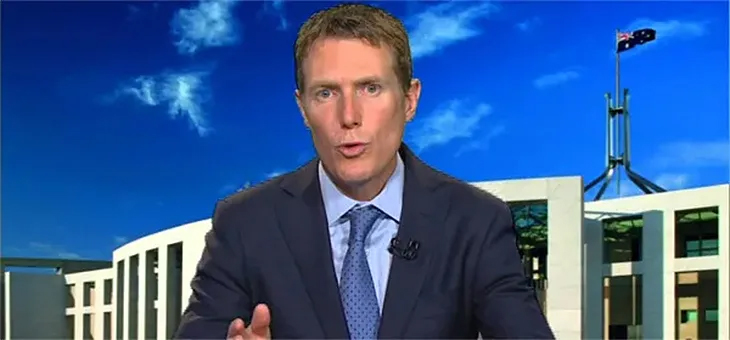Politicians love to roll out the ‘pub test’ as a measure of an idea, action, policy or person’s credibility. How would former attorney-general Christian Porter’s recent use of a blind trust to fund a legal case fare if subjected to the same scrutiny?
The basic premise of the pub test is this: for something or someone to be considered acceptable, it would need to be acceptable to the hypothetical patrons of the average Australian pub.
Perhaps not the most sophisticated of litmus tests, the pub test is meant to be a proxy for the judgement of the average Australian.
The phrase may have entered the political lexicon only recently, but the concept has similarities to the Australian legal concept of ‘the man on the Bondi tram’, who was also meant to represent the thinking of an everyday person.
In this way, the pub test acts a judgement method in situations where the law wouldn’t apply.
It sounds good as a theory but it can run into problems when applied in the real world, especially to actions in the political world.
Take Christian Porter’s recent use of a blind trust to fund his defamation case against the ABC.
Blind trusts are completely legal in Australia and allow both the grantor (the one paying into the trust) and the beneficiary (the receiver of funds from the trust) to remain anonymous to each other.
The fund is managed by a third party who does not communicate with either party about what is happening within the trust. The principle purpose of a blind trust is to eliminate any real or perceived conflict of interest between the grantor and beneficiary.
By the letter of the law, Mr Porter has done nothing wrong. But as a government minister, does receiving potentially millions of dollars from a secret donor or donors pass the pub test? Does it not create the kind of conflicts of interest that blind trusts were designed to prevent?
Labor certainly thinks so.
“He needs to answer where this money came from,” Labor leader Anthony Albanese said in a press conference.
“Members of parliament, as well as ministers, just can’t accept money from anonymous donors for a private legal matter. And that’s what’s happened here.”
Last month, Mr Porter resigned from the federal cabinet but that wasn’t the end of the matter.
Labor introduced a motion to the House of Representatives seeking to refer Mr Porter to the parliamentary privileges committee, a bipartisan Senate group that examines the behaviour of elected officials.
The motion was approved for debate by the Speaker of the House, Liberal Tony Smith. But in an unprecedented move, the government blocked the motion and stifled the debate. This effectively shut down any investigation into Mr Porter’s blind trust.
Mr Porter has always maintained that he has complied with all ministerial reporting requirements, according to the register of members’ interests. Again, this is within the bounds of the law. But does it pass the pub test?
“The whole reason it [the register of members’ interests] is there is so the public knows if a member of parliament gets money, the public have a right to know where that money has come from,” Labor MP Tony Burke told The Australian.
“This is a brown paper bag stitched together by lawyers. We have no idea whose money is involved.”
Are you okay with politicians effectively getting unlimited anonymous donations? Do you think we should have stricter laws around political donations? Let us know in the comments section below.
If you enjoy our content, don’t keep it to yourself. Share our free eNews with your friends and encourage them to sign up.

